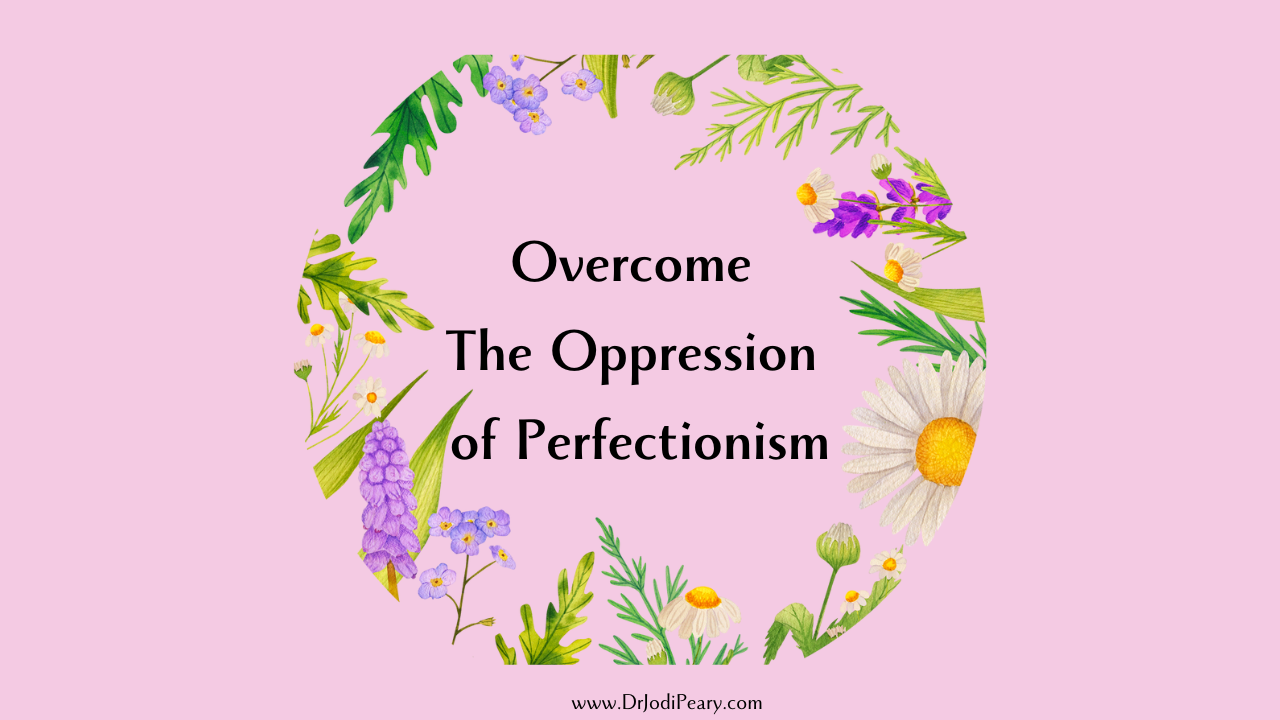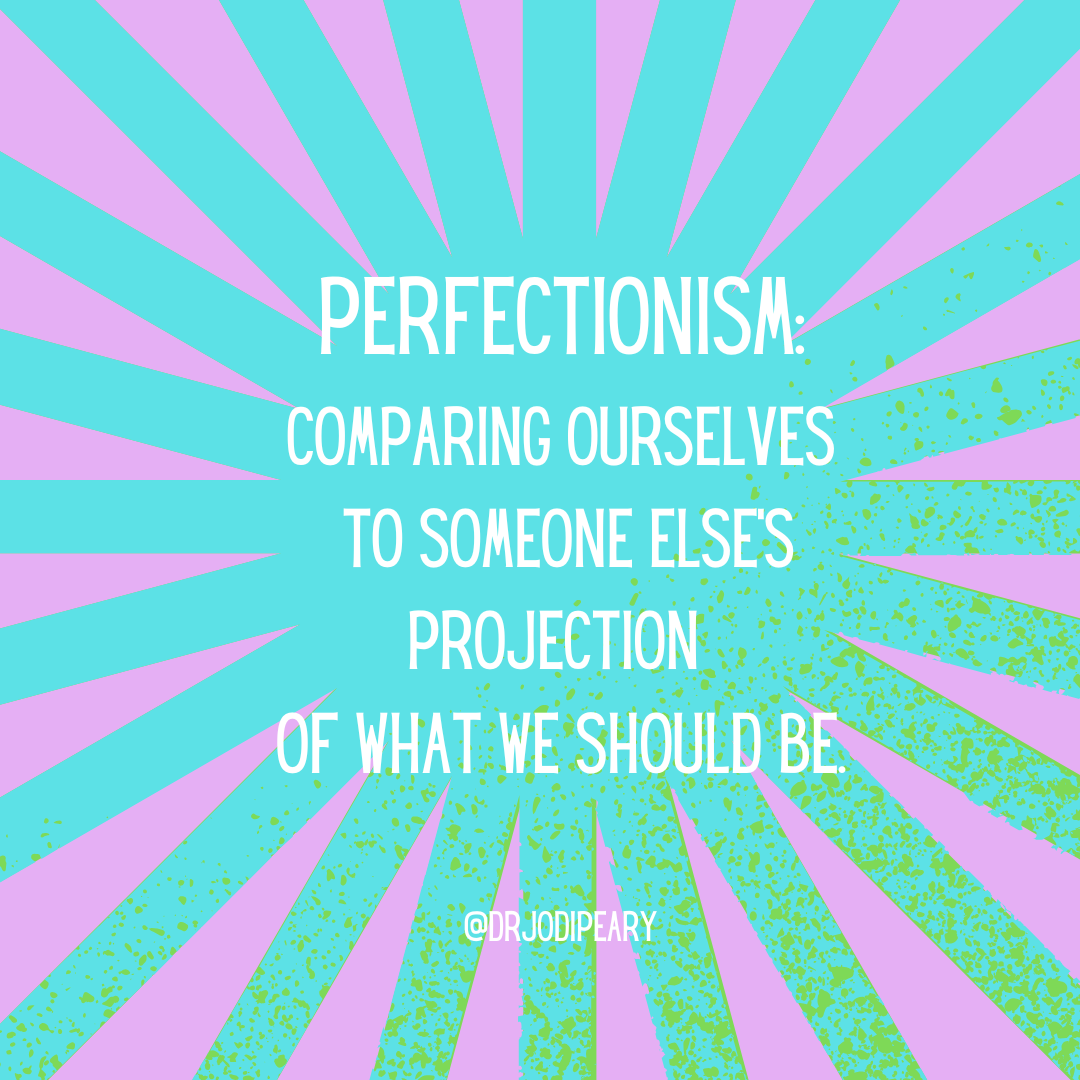Perfectionism is a Protection
Perfectionism is promoted in many cultures and the traits of perfectionism have lodged their way into our personalities and habits. However, there is more to perfectionism than drive for success. In the holistic psychology model, perfectionism is a survival strategy and a way our body and mind work together to manage fear. We present ourselves a certain way to avoid abandonment, criticism, or shame. Perfectionism feels like it is working because when we follow it’s tenets we receive approval, love, or validation for showing up a certain way. The problem is that inside we don’t accept the approval, validation, or love as having been received for being who we are. Instead, we attribute the approval, love, or validation as being offered in response to our perfection. Deep down we yearn, not to be loved for being perfect, but to be loved for who we are.
“Deep down we yearn, not to be loved for being perfect, but to be loved for who we are.”
When we were children we received messages all of the time regarding what we needed to do in order to make our families proud. We also received messages from teachers at school, from people in the communities we lived in, and even from religious organizations we were a part of regarding how we needed to perform in order to be welcome and accepted. We learn that it isn’t safe to simply be ourselves.
What did being perfect mean for you as a child?
Think back in time. When did you first learn that simply being yourself might not be good enough?
What did you learn about what it meant to show up in a way that your family could be proud of?
Did you have to dress a certain way?
Were you supposed to be seen but not heard? Were you supposed to remain out of view? Were you asked to perform or show off to make your parents proud?
Were you supposed to always have a smile on your face? What messages did you receive around showing emotions?
Would affection be withdrawn if you acted a certain way? Would your parents project anger onto you if you did not meat certain standards?
Did you have to get all A’s or be good at sports?
Did you receive approval when you acted like a lady but were shamed if you acted in a way deemed unladylike?
Did you have to show exterior toughness and masculinity?
Did you have to hide your sensitivity?
Perfectionism Triggers
As your memories return regrading perfectionism and the messages you received growing up, notice how consistent certain messages were. It is the repeated and consistent experience of being shamed for certain behaviors or qualities that impacts us so significantly. Decades later, as adults, we experience triggers to again be perfect or risk losing everything important.
Avoidance Driven Perfectionism and Approval Seeking Perfectionism
Perfectionism shows up in many different ways. Two common ways that perfectionism often arises are avoidance driven and approval seeking,.
Avoidance driven perfectionism shows up as being perfectionist in order to avoid making mistakes and receiving criticism and rejection.
Ask yourself, “What do I avoid doing in order to prevent being rejected?
When we experience avoidance driven perfectionism simply being seen feels unsafe. We avoid anything that might suggest to others that we are a failure. This type of perfectionism can leave us feeling stuck. We might never start something that we think we will not be good at or we might quit quickly after making a mistake. It can also show up as endlessly preparing, researching, or clarifying before acting.
If avoidance driven perfectionism feels familiar to you, who or what taught you that it was not okay to make mistakes? Or who taught you that it wasn’t okay to be seen learning or struggling?
The functional freeze is a symptom you may experience if you are familiar with experiencing avoidance driven perfectionism. When an action feels unsafe, the body shuts down. Rather than diving right into behaviors or activities that create fear, you want to take small steps. When you notice you are feeling stuck or being very indecisive engage in a small step toward acting in a new way in order to teach your body that it is safe to act.
For example, if you notice that avoidance driven perfectionism shows up for you in an inability to make decisions forcing yourself to just act without thinking may lead to functional freeze. Instead, consider giving yourself a contained amount of time to ponder and consider all the options but then commit to acting within the time frame. For instance, “I will consider the options and within 10 minutes I will make a choice.” Making the decision is, in and of itself, the important exercise. Whether you ultimately choose right or wrong you are learning that making choices is part of life and that it is safe for you to choose. You learn to trust yourself.
Avoidance driven perfectionism may include shy behaviors but they are more than just being shy. The shy behaviors are more about needing to be invisible in order o feel safe. We hide behind a wall to feel safe but being there is unfulfilling. Parts of us want to be seen in order to feel like we belong. We all experience the need to connect and belong.
Approval seeking perfectionism shows up as chasing accolades and perfectionism in order to receive validation and be okay.
Ask yourself, “Who am I if I do not receive external validation?”
When we experience approval seeking perfectionism we feel we are not enough without our performance or without someone saying we are amazing or worthy. We are hyper aware of the way other people react to us. Are you someone who feels the need to be seen? Do you tune into the way other people perceive you? Do you notice who notices you? Do you push yourself particularly hard for recognition in certain contexts?
Approval seeking perfectionism often shows up in the habit of being an over-achiever. It also shows up as people pleasing. We may feel we must always look busy or hard working. We may be afraid to be seen relaxing. We may need to receive praise in order to feel good about the way we look. We may insist upon over-delivering in order to assure we will receive a positive reaction. In this way of being perfectionist, our identity often merges with our habits and we want to be seen and identified with the way we do certain things or perform.
As with avoidance driven perfectionism, we can take small mindful steps daily to break the habit of approval seeking. Notice who you feel connected to in the moments were you crave validation. When you notice you are craving outside acceptance or approval, pause. Let yourself take the next step into acting just with your self. Just be in the action without the audience reaction. Tell yourself, “I am doing this for me.” “I decide what matters to me.” “I am worthy even without another’s attention.”
Learning to Be Okay Without Avoiding or Without Validation
We can reconnect with ourselves in a way that is less perfectionist by learning to take small steps daily that reconnect us with our intuition.
We can give ourselves small opportunities daily to act instead of avoid or to act without the need for external approval.
We can be prompted in taking these small steps by paying attention to our bodies and the signals our bodies are sending us. Notice when you experience tension or tightness in your neck or in your jaw. Maybe you get a knot in your throat or a feeling of sickness in your stomach or heaviness in your chest. Noticing these signals can alert us to the fear we are experiencing and the need we might feel arising to over control other people’s perceptions of us. Just this checking in with the body and pausing to see what is happening in the moment for you objectively is a huge first step to healing perfectionism.
A Practice to Heal Perfectionsim
Check in with your body a few times a day and just notice what you are feeling.
Label what is happening for you in that moment objectively.
Make a choice that follows your observation. If you notice tension, breathe into the space and release the tension. If you notice you are holding your breath, do a minute of deep breathing. It may be necessary to just sit with the discomfort without needing to do anything about it. It will be okay. Everything changes. We can observe and take note without fixing anything.
What am I feeling in terms of others around me? Do I feel other or different? Am I worried about being seen or am I feeling as if I am invisible and feeling the need to be seen?
As you pause in the moment, listen to the voice inside of you.
Is your inner critic commenting?
Notice patterns and habits of thought that you engage in.
Switch from the inner critic voice if that is what comes up to a witnessing observing voice. Shift in your body and mind. What is the inner voice trying to protect you from?
Allow the witnessing and observing voice to come forward and offer you a more supportive and compassionate message. Consider offering yourself messages of affirmations.
Affirmations to Counter Perfectionism
I am worthy.
I am lovable.
I am enough just the way I am.
I do not need to be perfect to be worthy of love.


